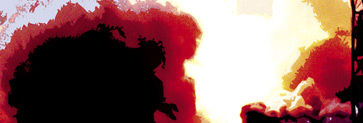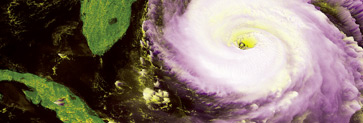By Judy Stokley
When I started out in management I tried to keep track of every detail on a project. In fact, I always say, “It is a good thing that wisdom comes with age” because I don’t believe I could physically take the hours I used to work.
I’ve learned more and more to trust that if I am working with the right people and I set up the right structure that they can make everything happen.
I used to work 7 days a week. I remember one year I didn’t take a weekend off for 12 months because I thought I had to do everything. I don’t do that now, and the people who work for me seem to get more done. I got to this place by learning to trust the people working with me. It wasn’t that I didn’t have the confidence in the people who worked with me before; I just didn’t know how to leave them alone.
In the early ’90s, I took some courses at the Defense Systems Management College (DSMC). One teacher there taught a course in Human Relationships, and it changed my life. The course was about leadership and how to communicate with the people on your team. Unfortunately, most of the other 20 or so people in the class ignored the instructor or, worse, made fun of what she was saying. They called it the “touchy feely” class. Understand this was 10 years ago; I think that today there would be more openness in accepting this kind of knowledge.
I loved what the instructor was saying, and I absorbed it like a sponge. It was the first time I even knew such stuff existed. I had chosen a technical career and spent my adult life studying technical issues, including all my training courses after I went to work for the Air Force. I took the Myers-Briggs personality test for the first time in the class. DSMC had tapes in the media library on communications and I listened to them all. I started reading all the books on leadership that I could get my hands on. I went at this with the same fervor I had gone at advanced calculus in college.
Since 1992, I have read a roomful of books on psychology, people, and leadership; before 1992, I hadn’t read one. I said to myself, “My God, there’s a whole reservoir of knowledge out there that I didn’t know to tap.”
I always tease the people down at DSMC that they really created me. I became a different person after going there, but not for the reasons they might think—not because I went to all their management classes, but because they launched me on a new path to understanding the meaning of leadership.
I still see a great many people who treat leadership courses as trivial, and they spend almost no time learning how to communicate and how to motivate people. They think the best use of their time is learning how to analyze cost and schedule variances on a project. Honestly, you are going to have a zillion people who can do that. There are going to be far fewer people around to show you how to be a leader.
Lesson
- True leaders learn from varieties of experience. The best leaders are those who are reflective and willing not only to “learn” from their experiences but to “unlearn” old ways of thinking.
Question
What is something you have “unlearned” during your career that has impacted your leadership style?
That vision thing
It seems to me that people are leaders when they have a compelling vision. They really believe it, and it comes out of them like poems come from the great poets. It’s part of their soul, part of how they think about the world. They haven’t had a committee get together to write them a vision statement on a plastic card; it is part of their core being, and you can just tell.
When you work for someone like that, you know that her vision is who she is. Every now and then in our lives, we get to work with someone like that. We know where we are headed and that it’s got to be a good place or else this person would not be leading us there. So, that is what I think leadership starts with—a person who has a vision that is the core of her soul and beliefs.
–Judy Stokley, ASK Magazine, Issue 9








